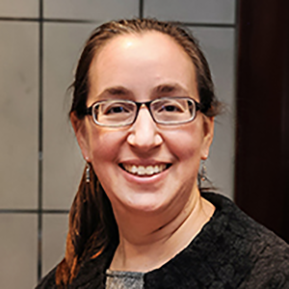Family Medicine, along with most other scientific journals, depends on volunteer peer reviewers to assure that we are publishing high quality papers. The act of peer reviewing advances the science of family medicine. Our editorial team is looking for a diversity of opinions and voices to assure the excellence of our published papers. I love peer reviewers and tell everyone I work with that they should volunteer to be one. Now, I am a little biased (being an editor of a journal that depends on peer reviewers), but I can’t overstate the important contributions of peer reviewers to the publication of our journal. So, if you already volunteer your time to do peer review, thank you. If you have not done any peer reviews, then let me tell you why you should.
First, being a peer reviewer will help you become a better writer and scholar. Reviewers may be inspired by positive attributes of papers while avoiding mistakes identified during the review. By reading what other people do, the way that they write and even how they do the research, you can decide what works and what you would do differently and then incorporate what you learn into your next paper. You can also learn about research methodology by reading about how others conducted studies.
Peer reviewing can also help you learn about the publishing process and about science itself by reading what other reviewers and the associate editor says about a paper, and seeing what ends up getting published. I always learn by reading reviewer comments and am excited when other reviewers had similar feedback to my own.
Second, being a peer reviewer can help your career. It is an accomplishment that you can put on your CV and some journals will send a letter to your dean or chair recognizing you as a peer reviewer. Also, if you do a good job with the review, you will be asked to review some more. Potentially, you may be asked to be on the editorial board of the journal where you do peer reviews. If you are interested in becoming an associate editor at a journal, the Editor in Chief will look at how many reviews you have done and whether they were high quality as a metric of your application. Being a peer reviewer can also build connections for future collaborations. This is one way that you build your professional reputation.
Lastly, being a peer reviewer helps the discipline. By reading papers submitted to the journal, you will learn what is important in family medicine and what other scholars are studying in your area of interest. You will be able to impact the quality of the papers that the journal publishes. There is something very satisfying about seeing a paper in print that you reviewed because you helped make it as good as it is.
Doing a high-quality review does take time. The time needed to do a review will depend on the type of article (ie, an original research paper will take longer than a brief report or narrative because is it longer). Most people spend 1-3 hours on a review depending on the complexity of the article, your familiarity with the topic, and experience doing peer reviews. It is time well spent! Even one review a year greatly helps our journal.
We appreciate that people volunteer their time to do peer reviews and hope that we have helped convince you to sign up. Your voice is important. You bring unique skills and experience and can contribute to the excellence of our journal. You can sign up to be a reviewer at https://journals.stfm.org/familymedicine/reviewers/.

